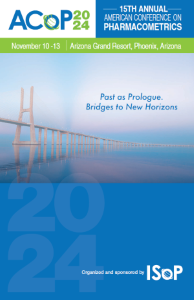QSP
(T-035) Identifying Determinants of Vaccine Efficacy: A Mechanistic Modeling Approach
Tuesday, November 12, 2024
7:00 AM - 5:00 PM MST
Joseph Cave, jcave@houstonmethodist.org – M.S., Houston Methodist Research Institute; Zhihui Wang, Ph.D – Professor, Houston Methodist Research Institute; Vittorio Cristini, Ph.D – Professor, Houston Methodist Research Institute; Prashant Dogra, Ph.D – Assistant Professor, Houston Methodist Research Institute
- CS
Carmine Schiavone, M.S.
PhD Student
University of Naples "Federico II"
San Cipriano d'Aversa, Campania, Italy - PD
Prashant Dogra, PhD
Assistant Research Professor
Houston Methodist Research Institute, United States
Author(s)
Presenter(s)
Disclosure(s):
Prashant Dogra, PhD: No financial relationships to disclose
Objectives: Vaccines are pivotal in combating infectious diseases, saving millions of lives worldwide and vastly improving public health. Despite their success, the effectiveness of vaccines varies across individuals, posing a significant challenge in achieving optimal community-wide protection. Several host factors such as virus pre-exposure, age, sex, genetics, and co-morbidities can influence the strength of the vaccine-induced immune response[1,2]. This variability thus affects the population-scale efficacy of vaccines and underlines the need for an approach to optimize the use of vaccines to improve outcomes. In this study we developed a mechanistic model to analyze how these factors influence the immune response to vaccination, aiming to enhance vaccine efficacy across populations.
Methods: Based on our previous work[3], we developed a model based on a system of ordinary differential equations to define the temporal evolution of the key immunological variables, including CD4+ T-cells, antibody-secreting plasma cells, neutralizing antibodies, and cytokines (IL-2 and IFN-gamma). A closed form solution of the kinetics of the injected antigen governs the activation of CD4+ T-cells, which initiate the downstream immunological processes leading to antibody-induced immunity. Analyzing immune responses to COVID-19 vaccines in approximately 3700 healthy adults, we fitted our model to population-scale data and performed a global sensitivity analysis to identify critical parameters affecting antibody production.
Results: The model fits were in good agreement with the data (Pearson correlation R > 0.9) Global Sensitivity Analysis (GSA) revealed that the duplication rate of plasma cells (P_PB), antigen potency (K_Ant), death rate of plasma blasts (D_PB), and the production rate of antibodies per cell (P_Ab) were the four key parameters driving antibody responses. Subsequently, we characterized the distribution of these 4 parameters for various cohorts representing a demographically diverse population. Significant differences were observed between the parameter distributions of cohorts, thereby quantifying the effect of demographic covariates on vaccine-induced immunity. This allowed us to simulate vaccine clinical trials and identify strategies, such as injection timing optimization, to enhance the immune response of weakly responsive cohorts.
Conclusion: Our findings provide insights into the variability of vaccine-induced immune response and propose a framework for optimizing vaccine efficacy tailored to demographic characteristics. This approach can improve vaccine distribution strategies and aid in the design of clinical trials, particularly crucial during pandemics.
Citations: [1] S. L. Klein and K. L. Flanagan, Nature Reviews Immunology 16, 626 (2016).
[2] M. M. A. R. van Dorst et al., Nature Reviews Immunology (2023).
[3] P. Dogra et al., JCI Insight (2023).

